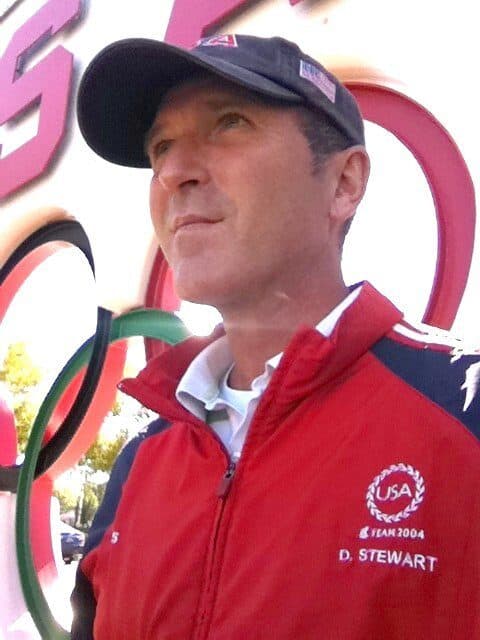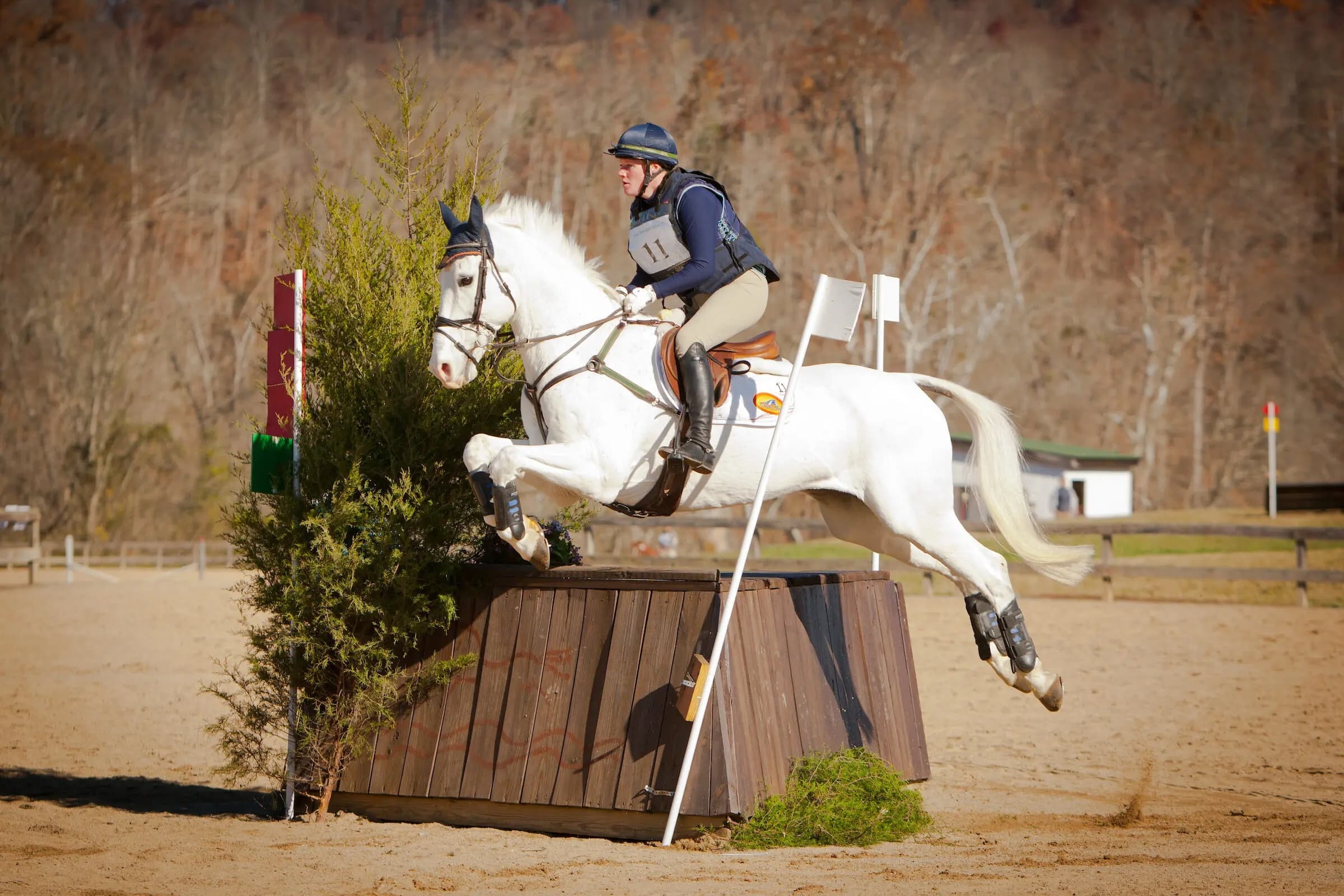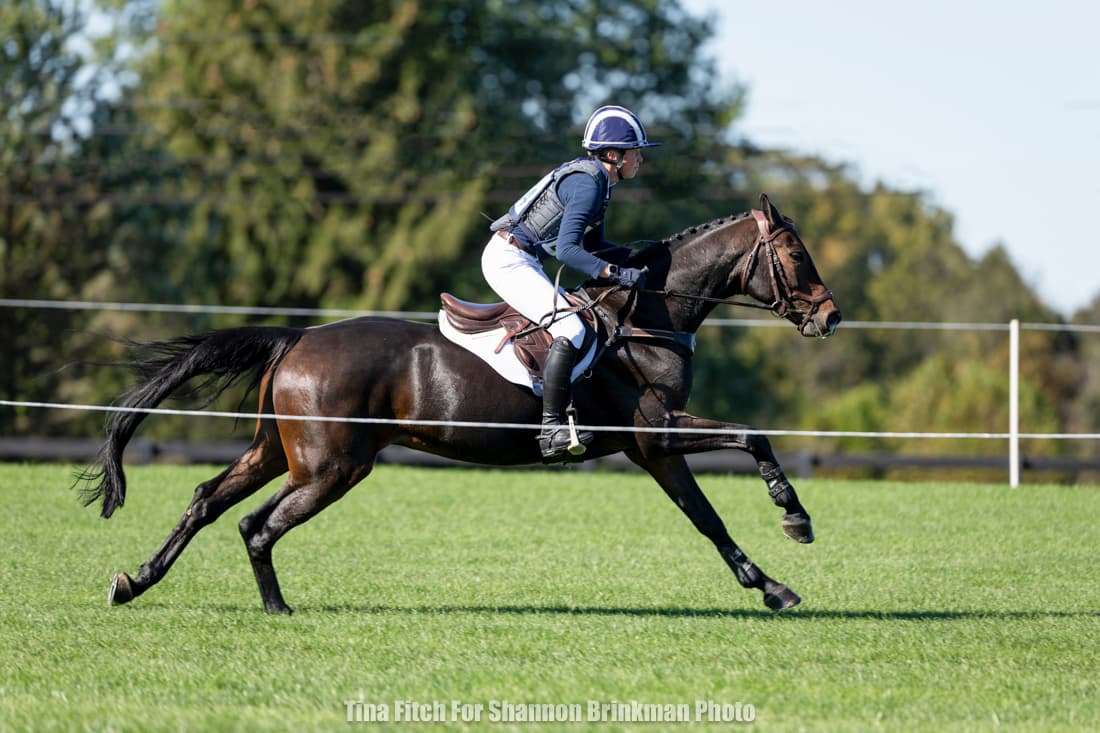Daniel Stewart Question and Tip of the Month

Question of the Month
Julia asks, "I receive lots of compliments on my riding but have a hard time believing them. I rode in one of your clinics recently and you talked about self-image. I think mine could use a make-over. Is there anything I can do to feel better about myself and my riding?"
Great question. As a rider you're lucky because you get to do what you love - but you also have to love what you do. Improving your self-image is the first step in making that happen.
Your self-image - who you believe you are and what you believe you're capable of - determines how you'll behave and what you'll try (and try to avoid!). Your every thought and action stem from the way you see yourself. If you see yourself as capable you'll have a pretty good day, but if you see yourself as unworthy it might just turn into a long and frustrating one. Signs that your self-image could use a little boost include frequent self-criticism, jealousy, and negative self-talk. Comparing yourself to others, difficulty giving and accepting compliments, and feeling underserving of praise are a few other common signs.
Self-Image Statements
Improving your self-image begins with developing the belief that you're capable of accomplishing great things. Creating, memorizing, and repeating a positive self-image statement (a phrase focusing on your strengths) can improve your self-esteem because it reminds you what you're capable of while steering your thoughts away from doubts and limitations. Building a self-image statement is a simple three-step process:
- Identify one or more of your strengths like, "I'm good at transitions and have a great position."
- Identify what they can help you accomplish like, "They keep me balanced and help me score well."
- Combine them together into a two-part statement like, "My great transitions and good position will keep me balanced and help me score well today."
The best self-image statements are voiced in the present using words like now or today; start with words like I have, I am, or my (or better yet we have, we are, or our - remember your horse!); include physical and mental strengths; and are made for both showing and schooling. Here are a few examples:
- Schooling - My strong leg, supple hips, and positive attitude will help me get great lead changes today.
- Showing - My balanced position, precise transitions, and great focus will allow me to compete well today.
When it comes to positive thinking, remember that it's impossible to think great things about your riding if you don't think great things about yourself. Create a positive self-image statement and you'll be well on your way to improving your self-esteem... and remember what Aristotle said:
You are what you repeatedly think.
Excellence is therefore not an act, but a habit.
You also mentioned that you have a difficult time accepting compliments. Since this might be a sign of low confidence see the Tip of the Month below for a few tips on turning compliments to confidence.
Tip of the Month
Attitude of Gratitude
Turning Compliments into Confidence!
Confidence and a positive self-image go hand-in-hand and allow you to accept and value compliments from others. Without them you might struggle believing the praise of others. The world's greatest riders know it's important to acknowledge a job well done - you won't hear them say,It was a fluke or It was an accident - Instead they'll just say a simple "thank you" because they've learned how to accept (and believe) the compliments of others. This is called an attitude of gratitude or belief-believing (believing in the positive beliefs of others).
Without an attitude of gratitude you might have a difficult time appreciating your accomplishments - you might even try to convince others that you're unworthy of the praise by saying things like, "Sure I went clear but did you see how I chipped fence four?" or "Sure I scored well but my transitions were horrible." Trying to purposely disprove a compliment or accomplishment is a common sign of low confidence. Like a child who grows out of the "BUTT" phase (always saying things like "Her's is funny and his wiggles") you need to outgrow the "BUT" phase. When you develop the ability to accept a compliment without having to feel as if you need to explain it away, you'll have developed an attitude of gratitude and the improved confidence and self-image that goes along with it.
Perhaps even more detrimental is when you believe something to be true (even though it's not) and then try to prove it to yourself by recalling negative memories to confirm it (like telling yourself everyone is better than you and then thinking about all the times you rode poorly). This is called confirmation bias because you purposely try to confirm your negative biased opinion by recalling negative things that can prove it. This is similar to when a person says flying is dangerous (even thought it's proven to be much safer than driving) and then confirms their bias by only reading articles about plane crashes.
The real problem with confirmation bias is that if you convince yourself you're unworthy, you might unintentionally give less than 100% (because you feel it won't make a difference). In the end, your bias (not being as good as everyone else) might just get confirmed - not because it's true - but because you made it happen by not giving 100%. Sadly when this happens you might even say something like, "See, I told you that everyone was better than me" causing you to believe even more strongly in your initial bias.
When it comes to confidence and self-image, always think positive things about yourself and then go out and confirm them... and always remember that:
If you believe it you can achieve it!
To submit a question or sign up for equestrian sports psychologist Daniel Stewart's newsletter, visit www.stewartclinics.com














